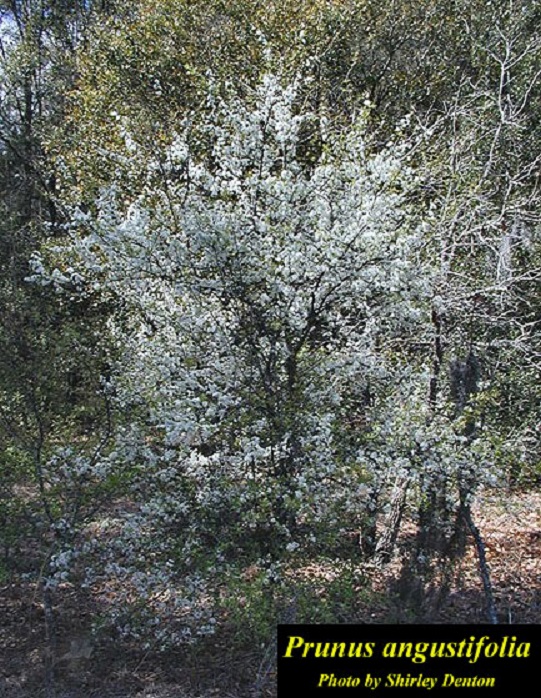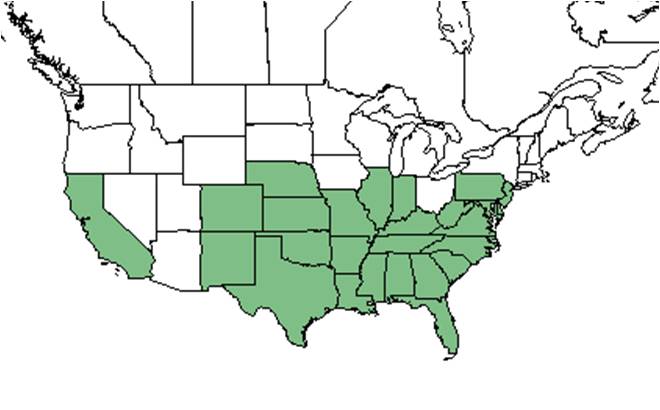Difference between revisions of "Prunus angustifolia"
(→Photo Gallery) |
|||
| Line 47: | Line 47: | ||
==Cultivation and restoration== | ==Cultivation and restoration== | ||
==Photo Gallery== | ==Photo Gallery== | ||
| + | <gallery widths=180px> | ||
| + | </gallery> | ||
| + | |||
==References and notes== | ==References and notes== | ||
Deyrup, M.A. and N.D. 2015. Database of observations of Hymenoptera visitations to flowers of plants on Archbold Biological Station, Florida, USA. | Deyrup, M.A. and N.D. 2015. Database of observations of Hymenoptera visitations to flowers of plants on Archbold Biological Station, Florida, USA. | ||
Revision as of 20:28, 16 February 2016
| Prunus angustifolia | |
|---|---|

| |
| Photo by Shirley Denton (Copyrighted, use by photographer’s permission only), Atlas of Florida Vascular Plants | |
| Scientific classification | |
| Kingdom: | Plantae |
| Division: | Magnoliophyta - Flowering plants |
| Class: | Magnoliopsida – Dicotyledons |
| Order: | Rosales |
| Family: | Rosaceae |
| Genus: | Prunus |
| Species: | P. angustifolia |
| Binomial name | |
| Prunus angustifolia Marshall | |

| |
| Natural range of Prunus angustifolia from USDA NRCS Plants Database. | |
Common name: Chickasaw plum
Contents
Taxonomic notes
Description
A description of Prunus angustifolia is provided in The Flora of North America.
Distribution
Ecology
Habitat
Phenology
Seed dispersal
Seed bank and germination
Fire ecology
Pollination
The following Hymenoptera families and species were observed visiting flowers of Prunus angustifolia at Archbold Biological Station (Deyrup 2015):
Apidae: Bombus impatiens, Epeolus zonatus
Colletidae: Colletes brimleyi, Hylaeus confluens
Halictidae: Agapostemon splendens, Augochlora pura, Lasioglossum pectoralis, L. placidensis
Vespidae: Pachodynerus erynnis, Parancistrocerus salcularis rufulus, Zethus slossonae
Use by animals
Diseases and parasites
Conservation and Management
Cultivation and restoration
Photo Gallery
References and notes
Deyrup, M.A. and N.D. 2015. Database of observations of Hymenoptera visitations to flowers of plants on Archbold Biological Station, Florida, USA.